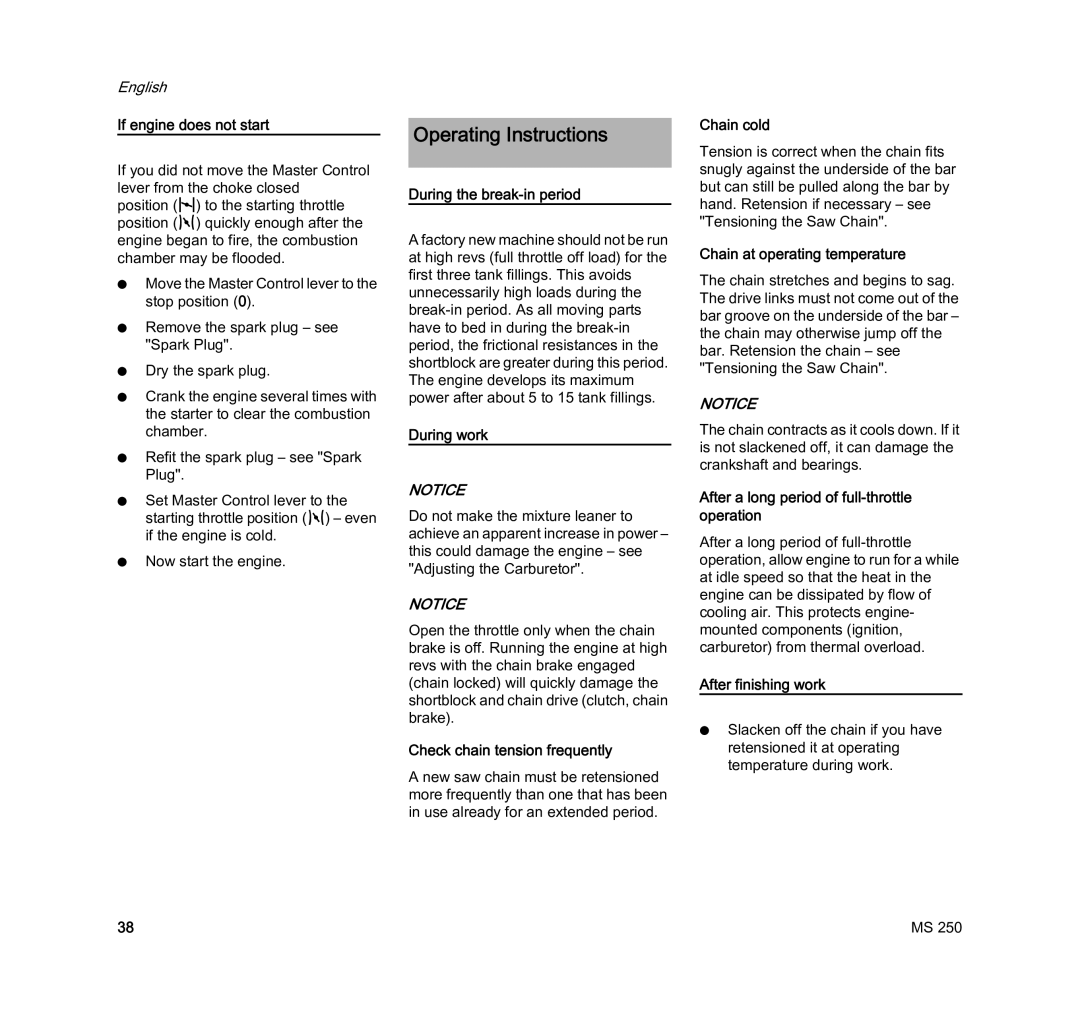
English
If engine does not start
If you did not move the Master Control lever from the choke closed position (l) to the starting throttle position (n) quickly enough after the engine began to fire, the combustion chamber may be flooded.
NMove the Master Control lever to the stop position (0).
NRemove the spark plug – see "Spark Plug".
NDry the spark plug.
NCrank the engine several times with the starter to clear the combustion chamber.
NRefit the spark plug – see "Spark Plug".
NSet Master Control lever to the starting throttle position (n) – even if the engine is cold.
NNow start the engine.
Operating Instructions
During the break-in period
A factory new machine should not be run at high revs (full throttle off load) for the first three tank fillings. This avoids unnecessarily high loads during the
During work
NOTICE
Do not make the mixture leaner to achieve an apparent increase in power – this could damage the engine – see "Adjusting the Carburetor".
NOTICE
Open the throttle only when the chain brake is off. Running the engine at high revs with the chain brake engaged (chain locked) will quickly damage the shortblock and chain drive (clutch, chain brake).
Check chain tension frequently
A new saw chain must be retensioned more frequently than one that has been in use already for an extended period.
Chain cold
Tension is correct when the chain fits snugly against the underside of the bar but can still be pulled along the bar by hand. Retension if necessary – see "Tensioning the Saw Chain".
Chain at operating temperature
The chain stretches and begins to sag. The drive links must not come out of the bar groove on the underside of the bar – the chain may otherwise jump off the bar. Retension the chain – see "Tensioning the Saw Chain".
NOTICE
The chain contracts as it cools down. If it is not slackened off, it can damage the crankshaft and bearings.
After a long period of full-throttle operation
After a long period of
After finishing work
NSlacken off the chain if you have retensioned it at operating temperature during work.
38 | MS 250 |
